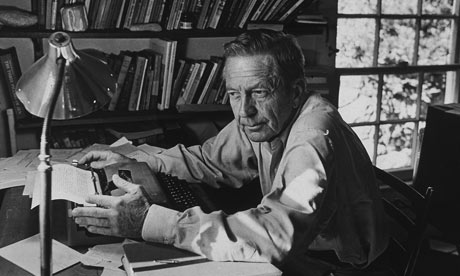
In 1964, John Cheever’s short story, “The Swimmer,” was published in The New Yorker magazine. In it, is a tiny eclectic world, centered around the main character, Ned Merril. Ned parades his self about the community. He crashes his neighbor’s pool parties and takes swims in their pool. ‘Neddy’ Merrill is “a slender man…far from young,” but youthful in spirit (Cheever p. 726). Throughout the story the stability of Ned’s mental state is drawn into question.
“’I drank too much of that claret’,” Ned admits to himself in the opening of the story (Cheever p. 726). The narrator is disembodied in the short story having the ability to know what Ned is thinking or feeling.
When the story begins Ned is inebriated, he crafts the idea to swim in every pool from his friend’s house to his own home. Ned’s neighbors belong to an upper-class society. “It was a fine day,” the narrator declares, “the day was beautiful,” the narrator reaffirms (Cheever p. 726). A good day for a swim Cheever would have the reader believe.
The reoccurring theme of water and drinking alcohol appears many times. It is the gregarious culture of this social clique to drink alcoholic beverages, yet Ned wants to spend the entire day in water. With every interaction Ned desires to continue his homeward journey. Concerns the neighbors have about Ned’s mental state.
“He knew that he would find friends along the way” (Cheever p 727).
Deciding to dedicate this journey home to his wife Ned names the expedition Lucinda. To Ned Lucinda is a river, separated by backyards, fences and roads. Ned speaks of Lucinda with ambiguity and equivocation, to either characterize his wife, or to characterize the quality of his swim. During the course of Ned’s walk home his neighbors, not exactly sure what he is up to, extend some friendly pleasantries, offering him a drink and conversation. “’Why Neddy…let me get you a drink,’” says a surprised Mrs. Grams as Ned shows up for a swim after leaving the Westerhazy’s pool party (Cheever p 728). “Ned felt a passing affection for the scene,” and as much would have wanted to stay he set out on some mission, and convinced himself to continue to the next neighbor’s home (Cheever p 728).
“’Oh, look who’s here! What a marvelous surprise! When Lucinda said you couldn’t come I thought I’d die’” says Enid Bunker, the homeowner of the next neighboring pool after “splashing past,” the Hammer’s residence (Cheever p 728). As chance would have it the Bunkers were having a pool party and Ned felt like he’d like to join. This theme continues but the politeness begins to deteriorate with each passing moment. Next he goes to the Levy’s who recently sold their home. “After swimming the pool he got himself a glass and poured a drink” (729).
“Was his memory failing or had he so disciplined it in the repression of unpleasant facts that he had damaged his sense of the truth” (731). “Was he losing his memory” (734)? With every new interaction, Ned begins to question his own mental state.
“Ned’s conviction cannot restore him to his former happy life,” (Ross). One theory for this story award winning story is that John Cheever himself is writing about his own thoughts and feelings. “Cheever had an unhappy marriage and his personal relationships were affected by his alcoholism,” (Champion).
Work Cited
- Blythe, Hal, and Charlie Sweet. “An Historical Allusion in Cheever’s ‘The Swimmer.’” Studies in Short Fiction, vol. 26, no. 4, Fall 1989, pp. 557–559.
- Champion, Laurie. “Literary Contexts in Short Stories: John Cheever’s ‘The Swimmer.’” Literary Contexts in Short Stories: John Cheever’s “The Swimmer,” Sept. 2006, p. 1.
- Cheever, John. “The Swimmer,” John Cheever: Collected Stories & Other Writings. The Library of America, 2009.
- Ross, Diane M. “The Swimmer.” Masterplots II: Short Story Series, Revised Edition, Jan. 2004, pp. 1–2.
